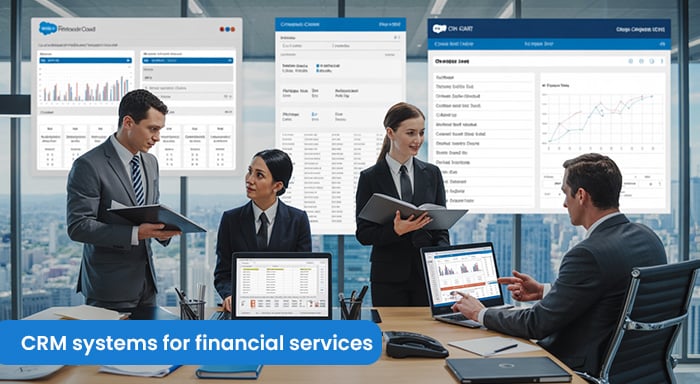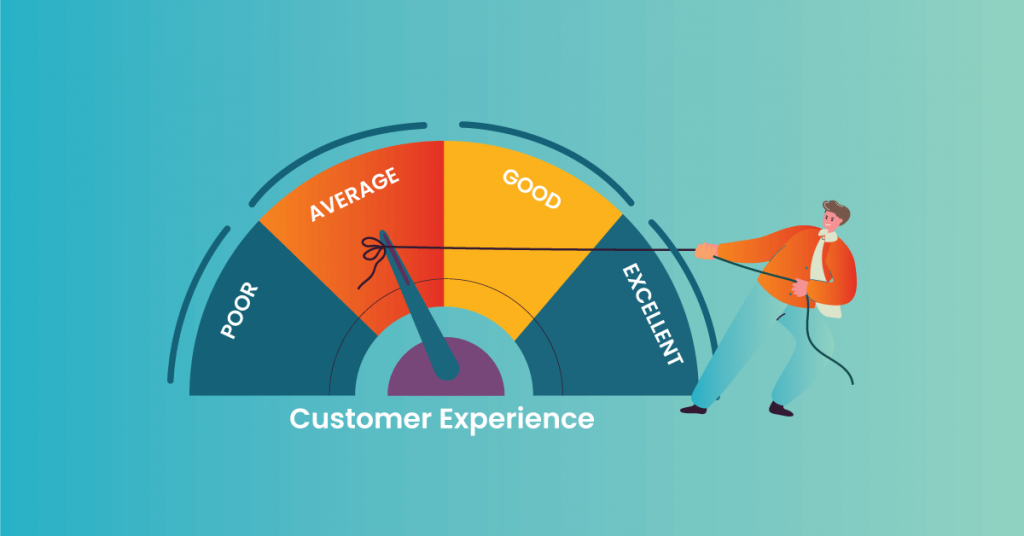In this fast-paced digital world, CRM systems for financial services have become very crucial for financial institutions. Customer Relationship Management (CRM) helps finance companies streamline their operations, improve customer support, and ensure industry compliance. CRM platforms provide customer data management, compliance tools, financial planning features, and real-time data analysis. These technologies can help banks, wealth managers, and insurance brokers organize documents, improve lead tracking, and adhere to industry norms. A good CRM can enhance your workflow and drive business growth, so choose your CRM wisely. In this blog, we will explore different CRM systems and their features.
What is CRM Software for Financial Services?
Financial CRM (customer relationship management) software enables organizations to improve their connections with customers. This technology has drastically changed the financial sector; it makes client relationships easier and more secure. Financial advisors, finance managers, and other financial professionals use these technologies to keep thorough client records, track sales, and automate marketing activities.
Here are the top 6 CRM tools that you can use in financial services
1. CRM Creatio –
CRM Creatio is an automated platform that enables workflow automation and manages client interactions without coding. It is renowned for its adaptability, AI-powered automation, and extensive business process management (BPM) features.
Key features
CRM Creatio provides a 360-degree customer perspective with a complete understanding of your clients. As it is a zero-code platform, it allows you to create apps and automate company processes without requiring technical knowledge.
2. Practifi –
Practifi is a performance optimization software for wealth management organizations, it improves operational efficiency and data quality through a simple user interface. It integrates teams, data, and technologies to enhance visibility and accelerate corporate success.
Key features
It includes various features like smart automation, compliance management, an open API, and an effective pipeline tracking system. This platform also offers an enterprise workflow engine and sophisticated analytics for turning data into meaningful insights.
3. Wealthbox CRM –
Wealthbox CRM was created especially for financial advisers and wealth management firms. It provides a simple but effective platform for tracking client connections and optimizing advisory procedures.
Key Features
It offers complete client profiles, including financial information and communication history, along with automated tools to organize tasks, workflows, and client follow-up. Moreover, its intuitive design makes it easy to use for financial advisor.
4. Salesforce Financial Services Cloud-
Salesforce Financial Services Cloud combines client data and provides real-time collaboration, allowing your team to provide personalized customer experiences. You may easily automate operations, monitor service requests, and determine disputes.
Key Features
Its features include omnichannel customer interactions, insurance and banking process automation, and real-time collaboration tools. You can manage service requests, quote and issue insurance products, and customize customer interactions.
5. HubSpot CRM-
HubSpot CRM is renowned for its user-friendly interface and powerful marketing automation capabilities. It is suitable for financial services organizations that want to increase client engagement and streamline their marketing operations.
Key Features- The most unique feature of this CRM is that it offers essential CRM services for free. It also includes tools for email marketing, social media campaigns, and content management. As Hubspot works with a variety of financial tools and services, it creates a smooth workflow.
6. Redtail CRM-
Redtail CRM enables you to manage client connections using automated workflows that save time and eliminate manual activities. Its user-friendly design allows you to effortlessly switch between tasks and handle client data efficiently. The software also includes Redtail Email for centralized communication and Redtail Campaigns for personalized marketing.
Key features
Features of Redtail CRM include automated workflows, an easy-to-use user interface, and centralized client communication. You can also make use of customized marketing tools and secure document storage. The platform enhances customer service and provides substantial training resources.
How to choose the best CRM for your financial business
Here are some simple tips to help you find the best CRM system for financial services
- Firstly, you should analyze if it is scalable for your company and can handle more clients and data if your company expands.
- Determine features required by your business, such as compliance management and planning tools. Choose a CRM that meets your business needs or allows you to customize it accordingly.
- Select a budget for your CRM investment. CRM systems can range in price greatly; therefore, it is critical to know how much you are ready to invest before starting your search.
- Choose a CRM that has a user-friendly interface. A simple interface and intuitive features will help your team to adopt the system quickly.
Important features of CRM for financial services
An advanced CRM system for financial services should include strong contact management features. This provides the ability to save and manage customer contact information such as name, address, phone number, and email address. It should also enable users to build and manage contact groups for customers and vendors.
Another significant component of a financial services CRM is lead management. This includes the ability to track leads from their initial point of contact all the way through the sales process. It should also allow users to qualify leads, assign them to sales representatives, and track their progress.
Opportunity management is also critical in a CRM system for financial services. This includes the ability to track sales possibilities from the initial contact to the final transaction. It should also enable users to build and manage sales predictions, view interest rates, track win rates, and spot patterns.
Integration with other business systems is also necessary for a CRM for financial services. This involves integration with accounting, ERP, and other business software. This allows customers to view all of their client data from a single location, which can help businesses enhance efficiency and productivity.
Conclusion
As we all know, choosing the right CRM system for financial services can significantly impact your business growth. In this blog, we have discussed six of the best CRM systems for financial services, including CRM Creatio, Practifi, Wealthbox CRM, Salesforce Financial Services Cloud, HubSpot CRM, and Redtail CRM. Each platform has its unique features and services.
Remember that a CRM system is more than just software; it's an investment in client relationships.
To choose the best CRM for your financial business, ensure it is scalable, fits your budget, and offers essential features like compliance management and planning tools.
Take your time to analyze each CRM based on your specific needs instead of relying solely on descriptions- request demos to get hands-on experience. You can also consider reviews, which will help you make more informed decisions.
Author’s Bio

Hello, I am Ashish Dwivedi. I am a core CRM developer with 15+ years of experience in delivering efficient CRM solutions that drive business growth and efficiency. I specialize in creating extensions for SuiteCRM and SugarCRM. My most notable extensions include SuiteCRM Email to Lead, SugarCRM Mailchimp, and SuiteCRM BCC Archiver. I also have a CRM of my own called OutRightCRM.








